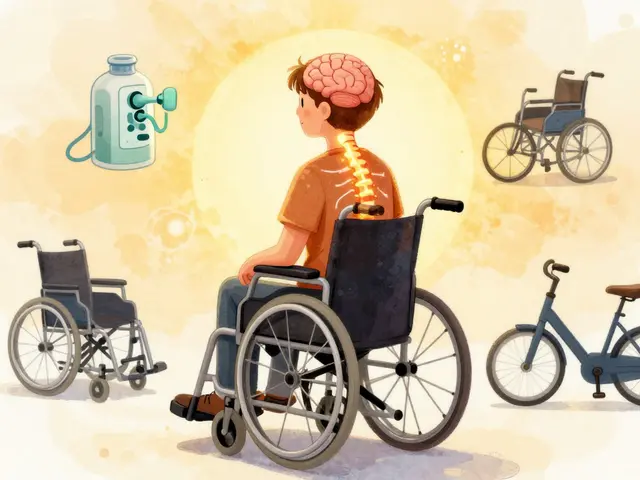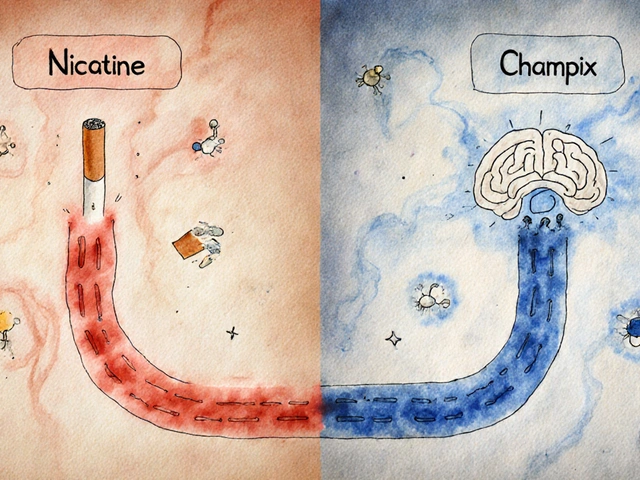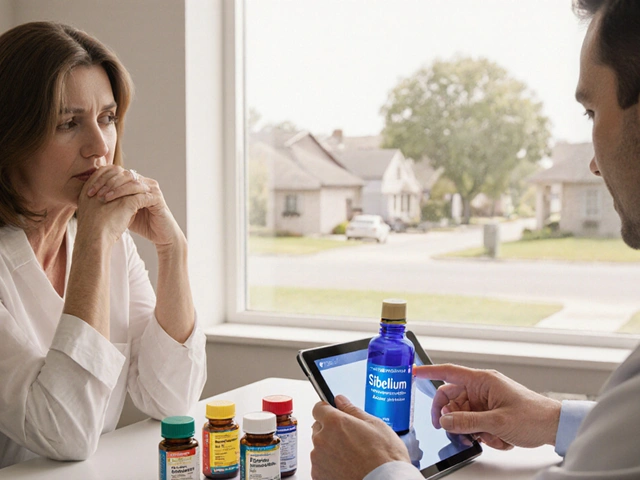Heart health: What to do about meds, exercise, and risks
Heart health isn’t only about eating better or walking more. If you take blood pressure pills, nitrates, or other heart-related meds, small changes can make a big difference — for better or worse. Below are clear, practical steps you can use today to keep your heart safe while staying active and feeling better.
Medications and exercise — simple rules
If you’re on Lisinopril-HCTZ or similar blood pressure meds, check your blood pressure before and after exercise. Many people feel fine, but diuretics (like HCTZ) can dehydrate you and raise the chance of dizziness or low sodium. Start workouts slowly: 5–10 minutes of gentle warm-up, then add intensity over weeks. If you feel lightheaded, stop and sit — and call your doctor if it happens more than once.
Methyldopa and other older antihypertensives may affect energy and balance. If you’re pregnant or thinking about pregnancy, methyldopa is sometimes used — talk to your clinician about exercise limits and safe dosing. If any workout triggers chest pain, severe breathlessness, or fainting, seek medical help immediately.
Drug interactions to never ignore
Know this: mixing nitrates (nitroglycerin, Isordil) with PDE5 inhibitors like sildenafil can cause a dangerous drop in blood pressure. If you use Isordil for angina, do not take sildenafil or similar drugs unless your doctor clears it. Also watch for combinations of blood pressure drugs that together make you too low — ask your pharmacist to run an interaction check whenever a new medicine is added.
Older adults are more prone to hyponatremia (low sodium), especially if they take diuretics or certain antidepressants. Low sodium can cause confusion, falls, and worsened heart symptoms. Regular blood tests and reporting new confusion or swelling helps catch problems early.
Buying meds online? Choose only pharmacies that require a prescription, show a physical address, and have clear contact info. Avoid suspiciously cheap offers for brand-name heart drugs — if it sounds too good to be true, it often is. Keep an up-to-date list of your meds and share it with every new provider.
Supplements like garlic (found in products such as Lasuna) can help cholesterol for some people, but they also interact with blood thinners. Vitamin D low levels have been linked in studies to higher blood pressure and heart risk for some groups — ask your doctor if testing or a modest supplement makes sense.
Practical checks: measure your blood pressure at home once daily for a week after any med change; keep a water bottle during workouts if you take diuretics; carry a list of meds and allergies; and set a calendar reminder for annual lab tests. If anything changes suddenly — new swelling, chest pain, severe fatigue, fainting — get care right away.
If you want, bring specific questions or a medication list to your next appointment. Small changes in how you use meds, exercise, and supplements can protect your heart and help you stay active without surprises.
25
Is Ativan Bad for Your Heart? Cardiologist Facts and Risks Explained
Curious if Ativan is risky for your heart? Get facts on heart health, the science behind benzos, what cardiologists say, side effect tips, and safety data in one clear guide.
26
Chestnuts vs Other Nuts: Fatty Acids & Phytosterols for Heart Health
Chestnuts are often overlooked next to almonds, walnuts, and cashews, but do they help your heart as much as the usual snack nuts? This article takes a close look at chestnuts and compares their fatty acid makeup and phytosterol content to other common nuts. Get clear on the real differences and pick up tips that could help protect your heart. Plus, discover if chestnuts might deserve a spot in your pantry (and why I keep some around for my family).
Latest Posts
Popular Posts
-
 Duloxetine and Liver Health: What You Need to Know About Hepatotoxicity Risk
Duloxetine and Liver Health: What You Need to Know About Hepatotoxicity Risk
-
 OTC Heartburn Medications: Antacids, H2 Blockers & PPIs Explained
OTC Heartburn Medications: Antacids, H2 Blockers & PPIs Explained
-
 Stinging Insect Allergy: What Venom Immunotherapy Really Does for You
Stinging Insect Allergy: What Venom Immunotherapy Really Does for You
-
 Accidental Pediatric Medication Overdose: How to Prevent It and What to Do If It Happens
Accidental Pediatric Medication Overdose: How to Prevent It and What to Do If It Happens
-
 Spinal Cord Injury: Understanding Function Loss, Rehabilitation, and Assistive Devices
Spinal Cord Injury: Understanding Function Loss, Rehabilitation, and Assistive Devices



